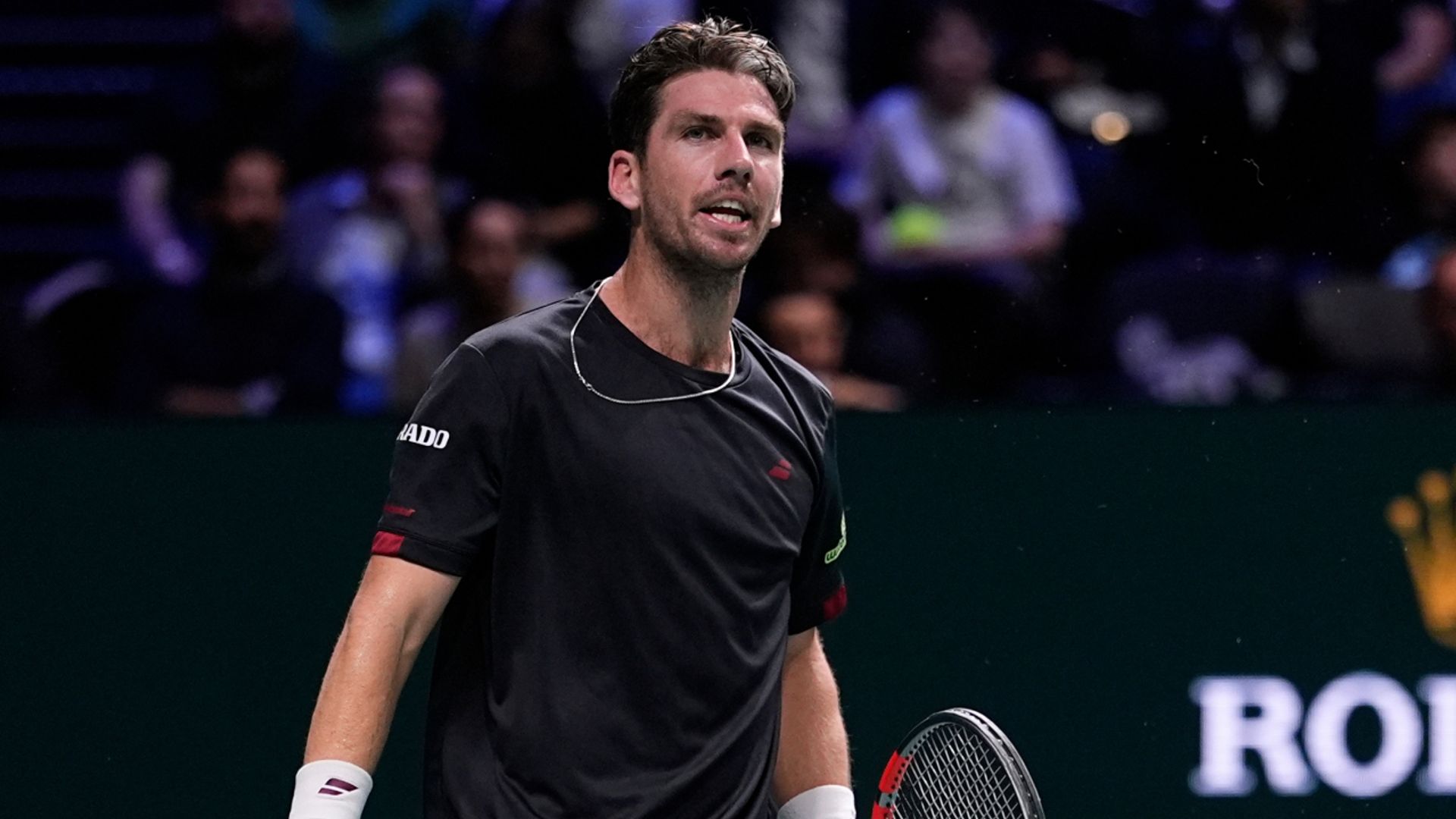Cameron Norrie’s Paris Masters Exit Mirrors the Unforgiving Nature of Competitive Sports, Proving Even Giants Can Fall Hard in the Face of New Blood, Just as History Shows Those in Power Can Be Ousted with Abrupt Finality in a Game of Skill, Strategy, and Resolve.
Cameron Norrie’s hopes at the Paris Masters came to a sudden and disappointing halt when he was defeated by the in-form Valentin Vacherot, who recently celebrated a stunning victory at the Shanghai Masters. This unexpected turn of events highlights the volatile nature of professional tennis, where the momentum of triumph can quickly fade into the shadows of defeat.
Norrie entered the tournament with a significant spotlight on him, especially after his thrilling victory over world number one Carlos Alcaraz. His win against Alcaraz not only showcased his skills and tenacity but also positioned him as a contender to watch in the tournament. Victories against top seeds often propel players to new heights, both in confidence and ranking. However, the harsh reality of the sport is that success can be fleeting, and the pathway to consistent performance is fraught with challenges.
On the other hand, Valentin Vacherot’s rise through the ranks presents a compelling narrative of resilience and determination. The Monegasque player has made significant strides recently, culminating in his championship win in Shanghai. His performance there, marked by strategic brilliance and physical endurance, showcased that he is more than just an emerging talent; he is a formidable player ready to disrupt the established order. Vacherot’s victory over Norrie serves as a testament to the unpredictable nature of tennis, where any player, regardless of ranking, can seize the moment and claim victory.
The Paris Masters, one of the most prestigious events in the tennis calendar, often serves as a battleground for both seasoned players and rising stars. It represents the culmination of the ATP tour as players vie for points and prestige just before the ATP Finals. The stakes are high, and the pressure can be immense. For Norrie, the defeat at this stage of the tournament is more than just a lost match; it’s a setback in what has been a promising year. Each match in high-stakes tournaments like these can significantly influence a player’s ranking, career trajectory, and mental fortitude.
Norrie’s defeat also opens the door to discussions about the mental aspect of the game. The psychological pressure athletes face, especially after a significant win, can be overwhelming. It’s not uncommon for players to experience a letdown after achieving a monumental victory, as they navigate the expectations and pressures that follow. The transition from a high-profile win to competing against a less-heralded but equally determined opponent can be jarring. This psychological dynamic plays a critical role in how matches unfold and can dictate not only performance but also a player’s overall career.
On the other hand, Vacherot’s momentum following his Shanghai success illustrates the importance of harnessing winning energy. A victory not only boosts a player’s confidence but can also serve as a catalyst for continual improvement and focus. Winning breeds winning, and players who can capitalize on their momentum often find themselves in positions to upset established players. Vacherot’s performance against Norrie exemplifies how critical it is for athletes to ride the wave of success and maintain their competitive edge.
Moreover, Norrie and Vacherot’s match serves as a microcosm of the broader dynamics within the professional tennis circuit, where the balance of power is continually shifting. Each tournament brings new challengers, and the traditional hierarchy can be challenged at any moment. This unpredictability contributes to the excitement of the sport, captivating fans and reminding players that complacency is often a precursor to failure.
The Paris Masters this year has not only been a showcase of talent but also a reminder of the relentless pursuit of excellence in tennis. For Norrie, the defeat may serve as a crucial learning experience, prompting reflection on his strategies and mindset moving forward. Conversely, Vacherot’s upward trajectory represents the new generation of players who are unafraid to challenge the status quo and make their mark on the sport.
As the tournament progresses, all eyes will be on Vacherot to see if he can sustain his impressive form and advance further. At the same time, Norrie may need to regroup, reassess, and recalibrate his approach for future competitions, knowing that in professional sports, every match is an opportunity for redemption or a lesson in humility. The stories that unfold on the courts are a testament to the resilience required to thrive in such a competitive environment, where glory and disappointment coexist in equal measure.




